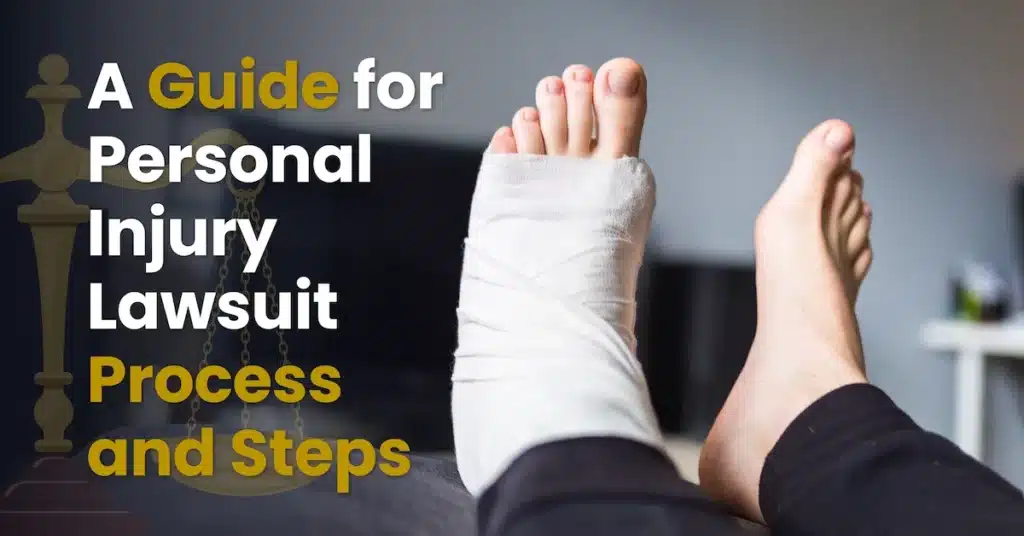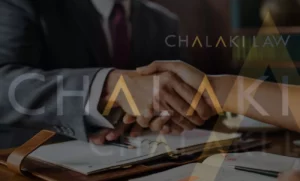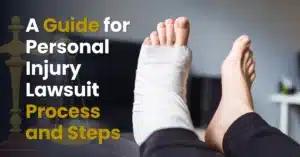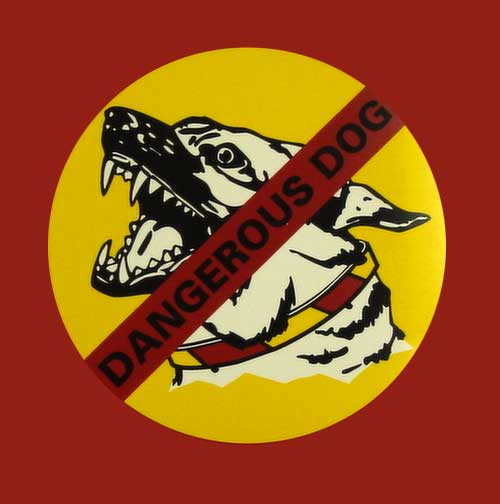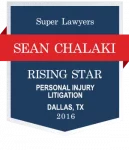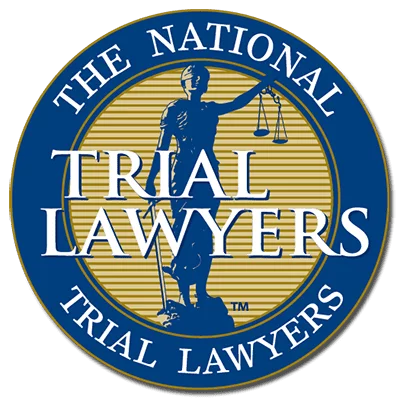What is the Definition of Personal Injury?
Personal injury refers to any physical or psychological harm caused to an individual as a result of someone else’s negligence or intentional actions. It encompasses a wide range of incidents, including car accidents, truck accidents, slips and falls, medical malpractice, and construction or workplace injuries. Personal injury law is designed to protect the rights of those who have been injured and seek compensation for their losses.
Why is it Important to Seek Legal Assistance?
The importance of seeking legal assistance in personal injury cases cannot be overstated. When you have suffered an injury due to someone else’s actions, navigating the legal process can be complex and overwhelming. Having an experienced personal injury attorney by your side can make a significant difference in the outcome of your case. They have the knowledge and skills to navigate the complexities of personal injury law and ensure that your rights are protected.
They will gather evidence, interview witnesses, and negotiate with insurance companies on your behalf to ensure that you receive fair compensation for your losses. Additionally, an attorney can help you understand the full extent of your injuries and the long-term consequences they may have on your life, ensuring that you receive the appropriate compensation to cover medical expenses, lost wages, and pain and suffering.
Overview of the Personal Injury Claims Process
The stages of personal injury lawsuit can be complex and overwhelming, but with the help of an experienced attorney, you can navigate through it smoothly. Initially, your attorney will gather all the necessary information and evidence related to your case, such as medical records, accident reports, and witness statements. They will then analyze this information to build a strong case on your behalf. Next, your attorney will negotiate with the insurance companies involved to reach a fair settlement. If a settlement cannot be reached, they will be prepared to take your case to court and advocate for your rights in front of a judge and jury.
During the court proceedings, your attorney will present the evidence and arguments in a compelling manner to support your claims. They will cross-examine witnesses and challenge the opposition’s evidence to weaken their case. Your attorney will use their skills and legal knowledge to navigate the complexities of the legal system and ensure that your rights are protected. They will fight for the best possible outcome, whether it is a favorable settlement or a favorable verdict in court. Let us look at each step more closely.
What are the Steps in a Personal Injury Lawsuit?
Seek Medical Attention
Seeking medical attention is one of the initial steps of a personal injury process. It is crucial to get medical treatment as soon as possible, not only to ensure your health and well-being but also to document your injuries for legal purposes.
Report the Incident
Reporting the incident is another important step in the personal injury claim process. It is necessary to report the incident to the appropriate authorities, such as the police or your employer, depending on the nature of the incident. This will help create an official record of the incident, which can be used as evidence in your claim.
What are the Personal Injury Lawsuit Steps in Gathering Evidence?
Gathering evidence is a crucial part of documenting your injuries for legal purposes. This may involve taking photographs of any visible injuries, collecting witness statements, and obtaining any relevant medical records or reports. It is important to gather this evidence as soon as possible after the incident to ensure its accuracy and reliability in supporting your personal injury claim. A more detailed blog about gathering evidence can be read here.
Documentation
Documentation is key in building a strong personal injury claim. It is important to document all aspects of the incident and your injuries. This includes keeping a detailed record of any medical treatments you receive, including dates, times, and the names of healthcare professionals involved as well as any expenses related to your injuries, such as medical bills, transportation costs, and lost wages. Keeping thorough and organized documentation will help strengthen your case and ensure that you have all the necessary information to present to your attorney.
Preservation of Evidence
Preservation of evidence is crucial in building a strong case. It is important to gather and secure any physical evidence related to the incident, such as photographs of the scene, damaged property, or any objects involved. If there were any witnesses present, it is equally essential to obtain their contact information as their testimonies can greatly support your claim. It is also advisable to preserve any digital evidence, such as surveillance footage or social media posts, that may be relevant to your case.
Consultation with an Attorney
Finding an attorney who is skilled in personal injury lawsuit steps is crucial to ensuring that your rights are protected and that you have the best chance of receiving the compensation you deserve. There are several resources available to help you find a qualified attorney, such as online directories, referrals from friends or family, or contacting your local bar association for recommendations. Our top-notch and multi-awarded lawyers at Chalaki Law, P.C., have over 25 years of combined litigation experience. We are open to help you 24/7. You can trust us to provide exceptional legal representation and support.
After you contact us, we will schedule an initial consultation, which is the next step in the process. During this consultation, you will have the opportunity to discuss the details of your case. It is important to come prepared with any relevant documents or evidence that you may have. Our lawyers will carefully review the information provided and ask you questions to gain a thorough understanding of your situation. This consultation is a crucial step in building a strong case strategy tailored to your specific needs. Rest assured that our team at Chalaki Law, P.C. is committed to fighting for your rights and ensuring the best possible outcome for your case.
Legal Personal Injury Process
Filing a Lawsuit
Once our lawyers have gathered all the necessary information during the consultation, they will proceed with filing a lawsuit on your behalf. This involves preparing the necessary legal documents, such as a complaint, which outlines the details of your case and the relief you are seeking. Our experienced attorneys will ensure that the complaint is comprehensive and accurately reflects your claims. Throughout this process, our team will keep you informed and updated on the progress of your case.
Discovery
Once the lawsuit has been filed, the next step in the legal process is discovery. Discovery allows both sides to gather evidence and information related to the case. This may involve requesting documents, conducting depositions, and interviewing witnesses. Our attorneys will strategically navigate the discovery process to uncover any relevant evidence that can strengthen your case. We will work closely with you to ensure that all necessary information is obtained and properly documented, helping to build a strong foundation for your lawsuit.
Settlement Negotiations
Once the discovery process is complete, our attorneys will begin engaging in settlement negotiations with the opposing party. Settlement negotiations aim to resolve the case without going to trial, saving you time, money, and potential stress. Our team will utilize our extensive knowledge and experience to negotiate a fair and favorable settlement on your behalf. We will advocate for your best interests, taking into consideration the damages you have suffered and the potential outcomes of going to trial. Throughout the negotiation process, we will keep you informed and involved, seeking your input and approval before making any decisions.
Mediation and Settlement
Mediation and settlement are alternative dispute resolution methods that can help parties reach a resolution without going to trial. These processes involve a neutral third party, known as a mediator, who facilitates communication and assists in finding a mutually acceptable agreement. Mediation and settlement can be highly beneficial as they provide a confidential and non-adversarial environment, allowing for open dialogue and creative problem-solving.
Mediation Process
The mediation process typically begins with an initial meeting between the mediator and the parties involved. During this meeting, the mediator explains the mediation process and establishes ground rules for the sessions. The mediator will also encourage each party to express their concerns and goals for the mediation. This initial meeting sets the tone for the rest of the mediation process, creating a safe space for open and honest communication.
Settlement Agreement
Once the initial meeting has taken place and the parties have had the opportunity to express their concerns and goals, the mediator will work with them to facilitate productive discussions and negotiations. The ultimate goal of the mediation process is to reach a settlement agreement that is mutually acceptable to all parties involved. This agreement outlines the terms and conditions of the resolution, addressing the issues and concerns that were brought up during the mediation sessions. The mediator will assist the parties in drafting the settlement agreement, ensuring that it is clear, comprehensive, and legally binding.
Trial
Once the settlement agreement is finalized, it can be submitted to the court for approval. However, if the parties are unable to reach a settlement through mediation, the next step in the legal process is typically a trial. During a trial, courtroom procedures are followed to ensure a fair and orderly process.
This includes the presentation of evidence, which may include documents, photographs, or other tangible items that support each party’s claims or defenses. Additionally, witness testimony may be called upon to provide firsthand accounts or opinions relevant to the case. Finally, both parties will have the opportunity to present closing arguments, summarizing the evidence and persuading the judge or jury to rule in their favor.
After the closing arguments, the judge or jury will deliberate and then render a verdict. If the verdict is in favor of one party, a judgment will be entered, outlining the legal consequences for the losing party. However, if either party is unsatisfied with the outcome, they may have the option to appeal the decision to a higher court, beginning a new phase of the legal process.
Post-Trial Procedures
Post-trial procedures encompass a range of activities that occur after a verdict has been reached. These procedures are crucial in ensuring that the judgment is carried out and that the legal rights of both parties are protected.
One of the first steps following a verdict is the issuance of a judgment, which outlines the specific legal consequences for the losing party. This judgment may include monetary damages, injunctions, or other remedies deemed appropriate by the court. Once the judgment has been entered, the winning party can begin the process of collecting the awarded damages. This may involve garnishing wages, seizing assets, or pursuing other legal means to ensure that they receive the compensation they are owed.
However, it is important to note that the losing party also has legal rights and protections in this process. They may have the opportunity to appeal the judgment or negotiate a settlement to satisfy the judgment. It is crucial for both parties to have access to legal representation during this stage to ensure fairness and protect their rights throughout the collection process.
Conclusion
In conclusion, the process of claiming for personal injury is a multifaceted journey that requires diligence, patience, and a clear understanding of the legal and administrative procedures involved. It begins with seeking immediate medical attention and documenting the incident thoroughly. Once you’ve addressed your medical needs, the steps to file a personal injury claim typically involve gathering evidence, identifying liable parties, consulting with an attorney, and negotiating or litigating for fair compensation.
Throughout this process, it’s crucial to remain organized, keep accurate records, and maintain open communication with your legal representative. Remember that each personal injury case is unique, and the duration and complexity of the claims process can vary. The ultimate goal is to seek justice and fair compensation for the physical, emotional, and financial hardships caused by the injury.
FAQ
In a personal injury claim, the injured party seeks compensation from the responsible party for their injuries and losses, typically through negotiation or legal action.
Personal injury lawsuits generally require four elements: duty of care, breach of duty, causation, and damages. You need to show that someone owed you a duty of care, that they breached it, and their actions directly caused your injuries, resulting in damages.
Compensation claims are typically paid by the at-fault party’s insurance company, or in cases where insurance doesn’t cover it, the responsible party themselves.
To handle a personal injury claim, you should seek medical attention, gather evidence, consult with an attorney, and notify the responsible party or their insurance company. Your attorney will guide you through negotiations or legal action.
The amount of compensation in a personal injury claim varies widely based on factors like the severity of injuries, liability, insurance coverage, and local laws. It’s difficult to predict an exact amount, but an attorney can help estimate potential compensation based on your case’s specifics.

